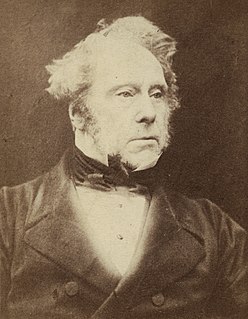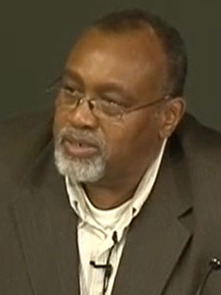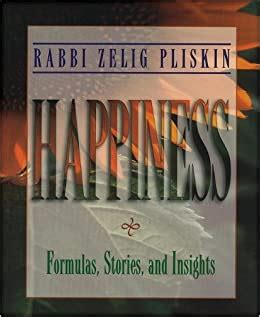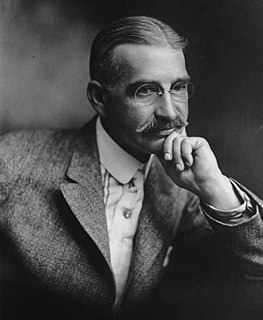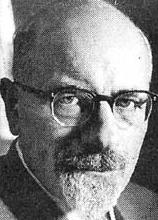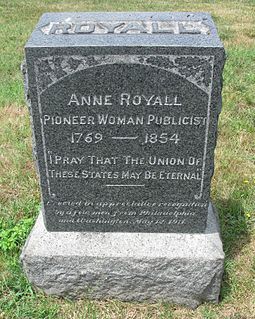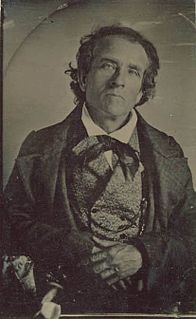Top 668 Misfortune Quotes & Sayings - Page 11
Explore popular Misfortune quotes.
Last updated on December 22, 2024.
It is indeed a misfortune for a woman to be without beauty, as with men the eye is the chief arbiter of qualities in the sex. Her beauty is her capital--her worth in the market matrimonial depends upon it. With her the Virtues are less reverenced when unaccompanied by the Graces. The sex understand this very well; and hence they seek mainly to make captive the eye, knowing the mind and heart will follow as a matter of course.
Chimerical and empty being, your name alone has caused more blood to flow on the face of the earth than any political war ever will. Return to the nothingness from which the mad hope and ridiculous fright of men dared call you forth to their misfortune. You only appeared as a torment for the human race. What crimes would have been spared the world, if they had choked the first imbecile who thought of speaking of you.
Americans were people who wanted to leave every place better than they found it, to leave every man more of a man than they found him. ... Americans could open doors to almost all that was admirable - it was their misfortune, not their fault, that movies and victrolas and advertisements squeezed in when they opened the door.
When a country is in harmony with the Tao, the factories make trucks and tractors. When a country goes counter to the Tao, warheads are stockpiled outside the cities. There is no greater illusion than fear, no greater wrong than preparing to defend yourself, no greater misfortune than having an enemy. Whoever can see through all fear will always be safe.
What ever the course of our lives, we should recieve them as the highest gift from the hand of God, in which equally reposed the power to do nothing whatever for us. Indeed, we should accept misfortune not only in thanks, but in infinite gratitude to Providence, which by such means detaches us from an excessive love for Earthly things and elevates our minds to the celestial and divine.
Even convicts, with whom I have spent some time, are not won over in any other way. Whenever I happened to speak sharply to them, I spoiled everything; on the contrary, when I praised them for their resignation and sympathized with them in their sufferings; when I told them they were fortunate to have their purgatory in this world, when I kissed their chains, showed compassion for their distress, and expressed sorrow for their misfortune, it was then that they listened to me, gave glory to God, and opened themselves to salvation.
I used to think that you could find peace and it would always be there. And there is a sense of that. But even in the worst moments, catch yourself and remember that within the storm of misfortune there is good fortune. Just get in practice with what they call in Taoism the Wu-wei; the non-action and becoming the observer of it. Just notice and stay at peace with it. I must have admit, that I still have those really disrupting moments.
And what shall he suffer who slays him who of all men, as they say, is his own best friend? I mean the suicide, who deprives himself by violence of his appointed share of life. Not because the law of the state requires him. Nor yet under the compulsion of some painful and inevitable misfortune which has come upon him. Nor because he has had to suffer from irremediable and intolerable shame, but who from sloth or want of manliness imposes upon himself an unjust penalty.
Do not go looking for problems to feed your soul. Just let life be your teacher. It will nourish you with its inevitable difficulties. How will you know whether you are letting life teach you and nourish you? If your physical senses become more sensitive to the beauty you see, the words of love you hear, and the life you feel touching your body and soul, then you know you have discovered the great value of misfortune.
Desperate? So what? I'm desperate, too!" Fenoglio snapped at her. "My story is foundering in misfortune, and these hands here," he said holding them out to her, "don't want to write anymore! I'm afraid of words Meggie! 'Once they were like honey, now they're poison, pure poison! But what is a writer who doesn't love words anymore? What have I come to? This story is devouring me, crushing me, and I'm it's creator!
The great majority of us are required to live a constant, systematic duplicity. Your health is bound to be affected by it if, day after day, you say the opposite of what you feel, you grovel before what you dislike and rejoice at what bring brings you nothing but misfortune. Our nervous system isn’t just a fiction, it’s part of our physical body, and our soul exists in space and is inside us, like teeth in our mouth. It can’t be forever violated with impunity.
America is the only advanced industrial democracy where people can get sick and languish because they can't afford care. Or where people are blocked in access to the system because they don't have access to insurance, which is only available through certain narrow portals and under certain very restricted conditions. We're the only society that hasn't embraced this idea that no one should go without access to these services, regardless of their financial condition. And no one should be saddled with a lifetime of debt because they have the misfortune of falling ill.
By the 'mud-sill' theory it is assumed that labor and education are incompatible; and any practical combination of them impossible. According to that theory, a blind horse upon a tread-mill, is a perfect illustration of what a laborer should be -- all the better for being blind, that he could not tread out of place, or kick understandingly. According to that theory, the education of laborers, is not only useless, but pernicious, and dangerous. In fact, it is, in some sort, deemed a misfortune that laborers should have heads at all.
So long as the law considers all these human beings, with beating hearts and living affections, only as so many things belonging to the master - so long as the failure, or misfortune, or imprudence, or death of the kindest owner, may cause them any day to exchange a life of kind protection and indulgence for one of hopeless misery and toil - so long it is impossible to make anything beautiful or desirable in the best-regulated administration of slavery.
[It is hard to know what is good luck and what isn't and therefore whether we should be happy or sad about it. Only time will tell. For example...] The Talmud relates a story about two people who wanted to travel by boat. One broke his foot and was unable to make the trip, while his friend got on the boat. The one who missed the boat cursed his misfortune. A few days later, however, he heard that the boat sank and all the passengers drowned.
A source of permanent, accessible pleasure, our genitals exist. The god who created our misfortune, who made us short-lived, vain and cruel, has also provided this form of meagre compensation. If we couldn't have sex from time to time, what would life be? A futile struggle against joints that stiffen, caries that form. All of which, moreover, is as uninteresting as humanly possible - the collagen which makes muscles stiffen, the appearance of microbic cavities in the gums.
In praise of Thy goodness I must confess that Thou didst try with all Thy means to draw me to Thee. Sometimes it pleased Thee to let me feel the heavy hand of Thy displeasure and to humiliate my proud heart by manifold castigations. Sickness and misfortune didst Thou send upon me to turn my thoughts to my errantries.-One thing, only, O Father, do I ask: cease not to labor for my betterment. In whatsoever manner it be, let me turn to Thee and become fruitful in good works.
A habit of finding pleasure in thought rather than action is a safeguard against unwisdom and excessive love of power, a means of preserving serenity in misfortune and peace of mind among worries. A life confined to what is personal is likely, sooner or later, to become unbearably painful; it is only by windows into a larger and less fretful cosmos that the more tragic parts of life become endurable.
Don’t you know that you are all my life to me? ...But peace I do not know, and can’t give to you. My whole being, my love...yes! I cannot think about you and about myself separately. You and I are one to me. And I do not see before us the possibility of peace either for me or for you. I see the possibility of despair, misfortune...or of happiness-what happiness!...Is it impossible?" Vronksy
I see young men, my townsmen, whose misfortune it is to have inherited farms, houses, barns, cattle, and farming tools; for these are more easily acquired than got rid of. Better if they had been born in the open pasture and suckled by a wolf, that they might have seen with clearer eyes what field they were called to labor in. Who made them serfs of the soil? Why should they eat their sixty acres, when man is condemned to eat only his peck of dirt? Why should they begin digging their graves as soon as they are born?
The defining characteristic of pessimists is that they tend to believe that bad events will last a long time, will undermine everything they do, and are their own fault. The optimists, who are confronted with the same hard knocks of this world, think about misfortune in the opposite way. They tend to believe that defeat is just a temporary setback or a challenge, that its causes are just confined to this one case.
Children sweeten labours. But they make misfortune more bitter. They increase the care of life. But they mitigate the remembrance of death. The perpetuity of generation is common to beasts. But memory, merit and noble works are proper to men. And surely a man shall see the noblest works and foundations have proceeded from childless men which have sought to express the images of their minds where those of their bodies have failed.
A man's usefulness depends on his living up to his ideals insofar as he can. It is hard to fail but it is worse never to have tried to succeed. All daring and courage, all iron endurance of misfortune, make for a finer, nobler type of manhood. Only those are fit to live who do not fear to die; and none are fit to die who have shrunk from the joy of life and the duty of life.
I've built many doorways and set out traps so that no one will be able to reach this place. That's what the angel said. This is a castle of darkness for the angel and I alone. Only within this yielding gloom can I lament the misfortune that has rained down all around me, only here am I permitted to scorn and pity the ugliness, the filthiness of how I smile and pretend at being pure in the light of day.
She was heartily ashamed of her ignorance - a misplaced shame. Where people wish to attach, they should always be ignorant. To come with a well?informed mind is to come with an inability of administering to the vanity of others, which a sensible person would always wish to avoid. A woman especially, if she have the misfortune of knowing anything, should conceal it as well as she can.
If suffer some misfortune, then think: "The Lord sees my heart, and if it pleases Him, it will be well both for me and and others." And thus your soul will always be at peace. But is someone murmurs, "This is bad, and that is bad," then he will never have peace in his soul, even though he fasts and prays a lot.
But Gregor understood easily that it was not only consideration for him which prevented their moving, for he could easily have been transported in a suitable crate with a few air holes; what mainly prevented the family from moving was their complete hopelessness and the thought that they had been struck by a misfortune as none of their relatives and acquaintances had ever been hit.
The day of my departure at length arrived. Clerval spent the last evening with us. He had endeavoured to persuade his father to permit him to accompany me and to become my fellow student, but in vain. His father was a narrow-minded trader, and saw idleness and ruin in the aspirations and ambition of his son. Henry deeply felt the misfortune of being debarred from a liberal education. He said little, but when he spoke I read in his kindling eye and in his animated glance a restrained but firm resolve not to be chained to the miserable details of commerce.
O! useful may it be to have shewn, that, though the vicious can sometimes pour affliction upon the good, their power is transient and their punishment certain; and that innocence, though oppressed by injustice, shall, supported by patience, finally triumph over misfortune!And, if the weak hand, that has recorded this tale, has, by its scenes, beguiled the mourner of one hour of sorrow, or, by its moral, taught him to sustain it—the effort, however humble, has not been vain, nor is the writer unrewarded.
Prayer gives us strength for great ideals, for keeping up our faith, charity, purity, generosity; prayer gives us strength to rise up from indifference and guilt, if we have had the misfortune to give in to temptation and weakness. Prayer gives us light by which to see and to judge from God's perspective and from eternity. That is why you must not give up on praying!
The brutal soldiers satisfied their sensual appetites without consulting either the inclination or the duties of their female captives; and a nice question of casuistry was seriously agitated, Whether those tender victims, who had inflexibly refused their consent to the violation which they sustained, had lost, by their misfortune, the glorious crown of virginity. There were other losses indeed of a more substantial kind and more general concern.
Can human nature ever be wholly and radically transformed? Can the man whom God made good be made wicked by man? Can the soul be reshaped in its entirety by destiny and made evil because destiny is evil? Can the heart become misshapen and afflicted with ugly, incurable deformities under disproportionate misfortune, like a spinal column bent beneath a too low roof?
How would you feel if you had no fear? Feel like that. How would you behave toward other people if you realized their powerlessness to hurt you? Behave like that. How would your react to so-called misfortune if you saw its inability to bother you? React like that. How would you think toward yourself if you knew you were really all right? Think like that.
A man once jumped from the top floor of a burning house in which many members of his family had already perished. He managed to save his life; but as he was falling he hit a person standing down below and broke that person's legs and arms. The jumping man had no choice; yet to the man with the broken limbs he was the cause of his misfortune. If both behaved rationally, they would not become enemies.
Heavy misfortunes have befallen us, but let us only cling closer to what remains, and transfer our love for those whom we have lost to those who yet live. Our circle will be small, but bound close by the ties of affection and mutual misfortune. And when time shall have softened your despair, new and dear objects of care will be born to replace those of whom we have been so cruelly deprived.
Once there was a gypsy queen who wore on her wrist a chain of six lucky charms - a golden crown, a silver horse, a butterfly caught in amber, a cat's eye shell, a bolt of lightning forged from the heart of a falling star, and the flower of the rue plant, herb of grace. The queen gave each of her six children one of the charms as their lucky talisman, but ever since the chain of charms was broken, the gypsies had been dogged with misfortune.
I regard large inherited wealth as a misfortune, which merely serves to dull men's faculties. A man who possesses great wealth should, therefore, allow only a small portion to descend to his relatives. Even if he has children, I consider it a mistake to hand over to them considerable sums of money beyond what is necessary for their education. To do so merely encourages laziness and impedes the healthy development of the individual's capacity to make an independent position for himself.
If those millions squandered on designing missionaries had been deposited in funds for the support of yourselves, when old age, misfortune, or sickness (from which none are exempt,) overtakes you, or for the distressed of your race, what a heaven of happiness you would have created on earth: ye would now be an ornament to your sex, and ages to come would call you blessed. But it is in vain to try - a priest-ridden female is lost to reason. Why? because she has surrendered her reason to the ... missionaries ... the orthodox; they are the grand deceivers.
Every reiteration of the idea that _nothing matters_ debases the human spirit. Every reiteration of the idea that there is no drama in modern life, there is only dramatization, that there is no tragedy, there is only unexplained misfortune, debases us. It denies what we know to be true. In denying what we know, we are as a nation which cannot remember its dreams--like an unhappy person who cannot remember his dreams and so denies that he does dream, and denies that there are such things as dreams.
Sometimes we are tempted to be that kind of Christian who keeps the Lord’s wounds at arm’s length. Yet Jesus wants us to touch human misery, to touch the suffering flesh of others. He hopes that we will stop looking for those personal or communal niches which shelter us from the maelstrom of human misfortune and instead enter into the reality of other people’s lives and know the power of tenderness. Whenever we do so, our lives become wonderfully complicated and we experience intensely what it is to be a people, to be part of a people.
Life always gives us exactly the teacher we need at every moment. This includes every mosquito, every misfortune, every red light, every traffic jam, every obnoxious supervisor (or employee), every illness, every loss, every moment of joy or depression, every addiction, every piece of garbage, every breath. Every moment is the guru.
Thus we see that the lot of the duck hunter is not a happy one. He is the child of frustration, the collector of mishap, the victim of misfortune. He suffers from cold and wet and lack of sleep. He is punished more often than rewarded. Yet he continues. Why? Because one great day-- and great days do come, days when the ducks are willing and the gun swings true-- repays him many fold for all the others.
Examine the life of the best and most productive men and nations, and ask yourselves whether a tree which is to grow proudly skywards can dispense with bad weather and storms. Whether misfortune and opposition, or every kind of hatred, jealousy, stubbornness, distrust, severity, greed, and violence do not belong to the favourable conditions without which a great growth even of virtue is hardly possible?
What would you not have accomplished if you had been free?" "Possibly nothing at all; the overflow of my brain would probably, in a state of freedom, have evaporated in a thousand follies; misfortune is needed to bring to light the treasures of the human intellect. Compression is needed to explode gunpowder. Captivity has brought my mental faculties to a focus; and you are well aware that from the collision of clouds electricity is produced — from electricity, lightning, from lightning, illumination.
A mother experiences more than one death, even though she herself will only die once. She fears for her husband; she fears for her children; again she fears for the women and children who belong to her children. ... For each of these-whether for loss of possessions, bodily illness, or undesired misfortune-she mourns and grieves no less than those who suffer.
There are three ways in which a ruler can bring misfortune on his army: By commanding the army to advance or to retreat, being ignorant of the fact that it cannot obey. This is called hobbling the army. By attempting to govern an army in the same way as he administers a kingdom, being ignorant of the conditions which obtain in an army. This causes restlessness in the soldier's minds. By employing the officers of his army without discrimination, through ignorance of the military principle of adaptation to circumstances. This shakes the confidence of the soldiers.
The friendliness and charity of our countrymen can always be relied upon to relieve their fellow citizens in misfortune. This has been repeatedly and quite lately demonstrated. Federal aid in such cases encourages the expectation of paternal care on the part of the Government and weakens the sturdiness of our national character, while it prevents the indulgence among our people of that kindly sentiment and conduct which strengthens the bonds of a common brotherhood.
Misfortune occurs or can occur to anyone, of any sort of character. The eudaimonic has more resources to avoid it (being in autonomous control of his appetites and assumptions) and more resources to deal with it if it occurs (being better able to put it in perspective and maintain his own evenness of self-mastery). Tragedy as a dramatic form is meant to foster the ethos of sophrosyne or moderation, "nothing to excess"; it nurtures a sense of distance from the dominant illusions and delusions that may infect even aristoi.
I'm not advocating the strenuous life for everyone or trying to say it's the choice form of life. Anyone who's had the luck or misfortune to be an athlete has to keep his body in shape. The body and mind are closely coordinated. Fattening of the body can lead to fattening of the mind. I would be tempted to say that it can lead to fattening of the soul, but I don't know anything about the soul.
In the beginning was belief, foolish belief, and faith, empty faith, and illusion, the terrible illusion. ... We believed in God, had faith in man, and lived with the illusion that in each one of us is a sacred spark from the fire of the shekinah, that each one carried in his eyes and in his soul the sign of God. This was the source—if not the cause—of all our misfortune.
The death of a man's wife is like cutting down an ancient oak that has long shaded the family mansion. Henceforth the glare of the world, with its cares and vicissitudes falls upon the old widower's heart, and there is nothing to break their force, or shield him from the full weight of misfortune. It is as if his right hand were withered; as if one wing of his angel was broken, and every movement that he made brought him to the ground.
The devil is not only a liar, but also a murderer, he constantly seeks our life, and wreaks his anger whenever he can afflict our bodies with misfortune and harm. Hence it comes that he often breaks men's necks or drives them to insanity, drowns some, and incites many to commit suicide, and to many other terrible calamities. Therefore there is nothing for us to do upon earth but to pray against this arch enemy without ceasing. For unless God preserved us, we would not be safe from him even for an hour.
The whole process of nature is an integrated process of immense complexity and it is really impossible to tell whether something that happens in it is good or bad. Because you never know what will be the consequences of the misfortune. Or, you never know what will be the consequences of good fortune.
I was blessed with a sense of my own destiny. I have never sold myself short. I have never judged myself by other people's standards. I have always expected a great deal of myself, and if I fail, I fail myself. So failure or reversal does not bring out resentment in me because I cannot blame others for any misfortune that befalls me.
The Society is based on that great bottom law of human right, that nothing but crime can forfeit liberty. That no condition of birth, no shade of color, no mere misfortune of circumstances, can annul that birthright charter, which God has bequeathed to every being upon whom he has stamped his own image, by making him a free moral agent, and that he who robs his fellow man of this tramples upon right, subverts justice, outrages humanity, unsettles the foundation of human safety, and sacrilegiously assumes the prerogative of God.
What avails it that indulgent Heaven
From mortal eyes has wrapt the woes to come,
If we, ingenious to torment ourselves,
Grow pale at hideous fictions of our own?
Enjoy the present; nor which needless cares
Of what may spring from blind misfortune's womb,
Appal the surest hour that life bestows.
Serence, and master of yourself, prepare
For what may come; and leave the rest to Heaven.
Whatever impatience we may feel towards our neighbor, and whatever indignation our race may rouse in us, we are chained one to another, and, companions in labour and misfortune, have everything to lose by mutual recrimination and reproach. Let us be silent as to each other's weakness, helpful, tolerant, many, tender towards each other! Or, if we cannot feel tenderness, may we at least feel pity!





